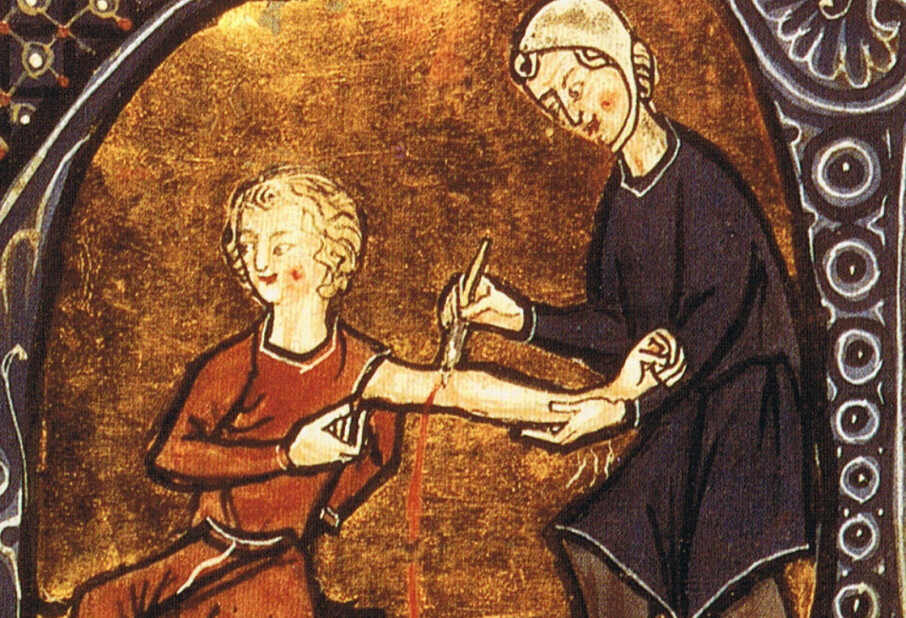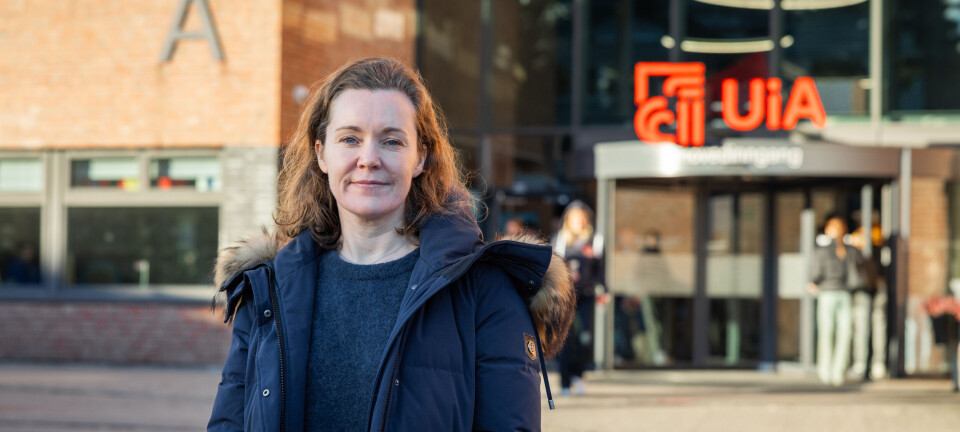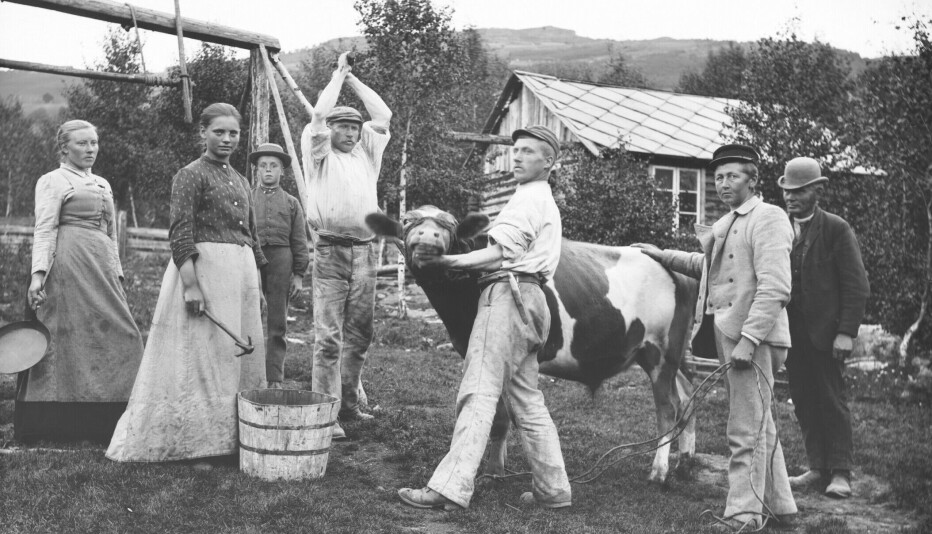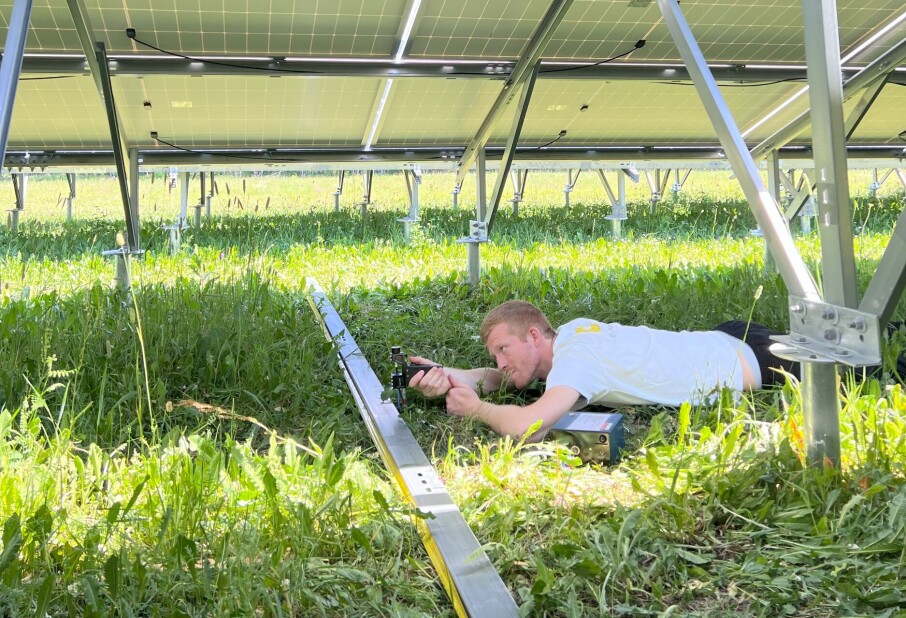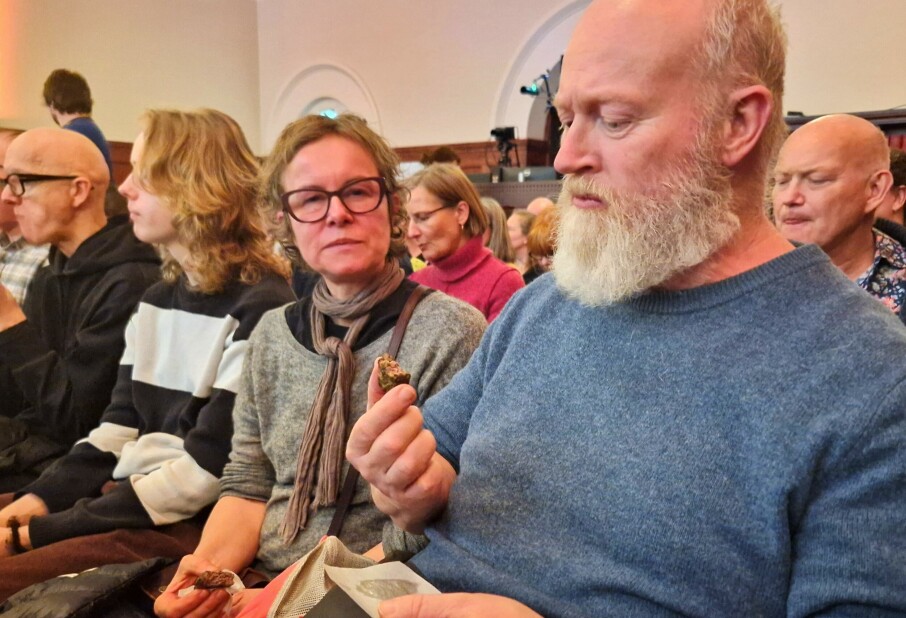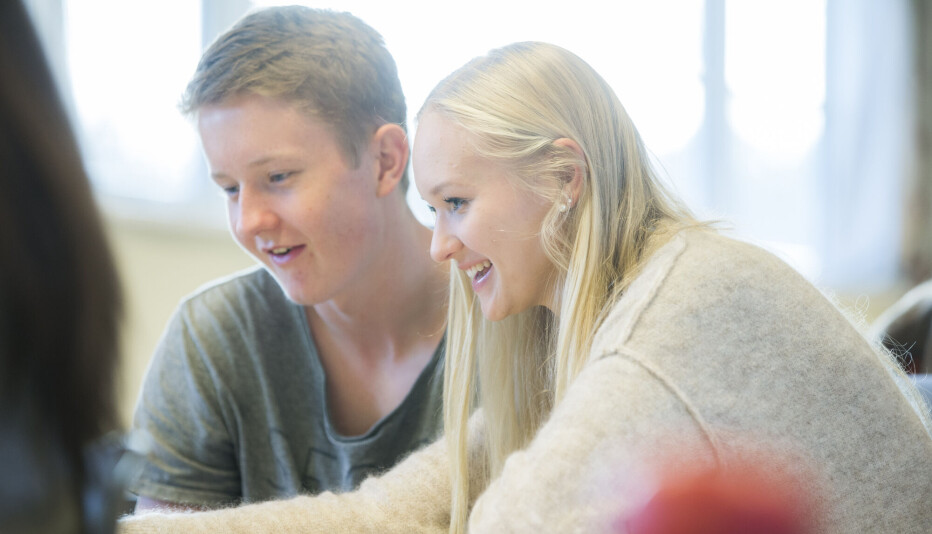
Researcher: Who people choose to have kids with is a key explanation for inequality
We tend to choose partners similar to ourselves. Resourceful individuals have children with each other, while less resourceful people choose equally matched partners. This trend has intensified over the last generations, research shows.
It's a well-known fact that birds of a feather flock together. But now researchers have delved deeper into this phenomenon. What do parents have in common?
The same level of education was the strongest shared trait, second only to substance abuse.
"There is evidence to suggest that partner selection is a significant explanation for why social differences are reinforced over time," says researcher Hans Fredrik Sunde at the Norwegian Institute of Public Health (NIPH).
He is one of the researchers behind a new study in the journal Nature Communications.
More than 93,000 Norwegian couples with children were analysed by researchers at NIPH's Centre for Fertility and Health.
Choose partners with similar traits
The researchers examined whether couples share physical or mental health problems, or similar levels of education.
"On average, we choose partners who resemble us somewhat in terms of BMI and height. However, educational attainment stands out the most. We tend to choose partners with a similar level of education as ourselves," says Sunde.
The findings show that women with anxiety often choose men with anxiety. Depressive individuals and alcohol abusers also tend to pair up. ADHD frequently appears in both partners.
Most viewed
It is less common for couples to share physical ailments, but people with back problems often find each other, according to the study.
Why do partners have similar education levels?
The researchers also compared primary school grades and the level of education attained. Parent couples are more similar in educational attainment than siblings are. But why is this the case?
"It's unlikely that one falls for the other's job on the first date," says Sunde.
Partners do not care about education directly, but similar social backgrounds matter, the study finds.
And education comes with a range of advantages. Those with higher education have a 60 per cent lower risk of mental health problems like depression. They are also less likely to have a partner with a mental health problem.
What does this mean for their children?
Children get a double dose
Those with many resources have children with each other, while those with fewer resources have children together.
"This leads to greater differences in where children start in life. Some have more advantages," says Sunde.
Children whose parents both have higher education are also more likely to achieve a university degree.
This may be due to genetic predispositions for learning or the influence of the upbringing environment. Parents' similar genetic predispositions for education may also result in different parenting styles.
There is a strong connection between social background and genetic predisposition. This therefore also has genetic consequences, which are reinforced.
Cementing genetic differences
Choosing partners similar to ourselves has genetic consequences. Partner selection leads to increasing differences in genetic predispositions, according to the new study.
"This is clearly an important explanation for why poverty is inherited," says Sunde.
This leaves marks on future generations. First-borns often achieve higher education than their siblings. They, in turn, choose partners with higher education and have children who are more genetically predisposed to pursue higher education.
Become more similar over time
Many couples become more similar over time, particularly regarding mental health problems.
However, the fact that partners are similar before getting together – such as having the same level of education – indicates what Sunde refers to as assortative mating.
The researchers believe this process has occurred over several generations. Siblings typically share 50 per cent of the same genes. They inherit similar genetic predispositions for education from both parents. In this study, siblings had 56 per cent genetic similarity for education.
Cousins shared 20 per cent similarities in educational levels, while mathematically, they should have had 12.5 per cent similarity, according to the researchers.
Nearly 4,000 gene variants linked to education
Researchers have identified numerous genetic variants associated with education. Exactly how these gene variants influence educational attainment is still unclear.
One reason could be that they affect traits like mental health, cognition, personality, motivation, and interests, which in turn influence the level of education attained.
Another reason could be that gene variants impact parents' education, health, or parenting style, which then affects the child's education.
As early as 2014, researchers discovered that high educational levels reflect more than just intelligence.
Education also reflects genetic advantages such as conscientiousness, mental health, and maturity.
"Experts disagree on what matters most, but it's likely a combination of factors," says Sunde.
Over 3,900 genetic variants are linked to educational attainment, according to a study from 2022. This was measured by genetic testing of over three million people.
These findings were recently presented at NIPH's final seminar on social inequality, mental health, and genetics at the Culture House in Oslo.

Wants more mapping
"This is an interesting and thorough mapping of partner selection in Norway, based on various characteristics within the population," says Kjell G. Salvanes, an economics professor at NHH who also researches inequality.
Nevertheless, Salvanes calls for more mapping.
"Without a clearer understanding of cause and effect, it's difficult to draw conclusions about what might reduce the inequality created by strong selection in partner choice," he argues.
Poor health can be connected to the ability to pursue education due to reduced capacity. Low education levels can, in turn, lead to demanding work that may further impair health.
"Furthermore, it's not entirely clear how much partner selection explains the intergenerational link in education in Norway. Whether partner selection is a very significant factor or of lesser importance remains uncertain," says Salvanes.
———
Translated by Alette Bjordal Gjellesvik
Read the Norwegian version of this article on forskning.no
References:
Krapohl et al. The high heritability of educational achievement reflects many genetically influenced traits, not just intelligence, PNAS, 2014. DOI: 10.1073/pnas.1408777111
Okbay et al. Polygenetic prediction of educational attainment within and between families from genome-wide association analyses in 3 million individuals, Nature Genetics, vol. 54, 2022. DOI: 10.1038/s41588-022-01016-z
Sunde et al. Genetic similarity between relatives provides evidence on the presence and history of assortative mating, Nature Communications, vol. 15, 2024. DOI: 10.1038/s41467-024-46939-9
Torvik et al. Non-random mating patterns within and across education and mental and somatic health, Nature Communications, vol. 15, 2024. DOI: 10.1038/s41467-024-54966-9

Subscribe to our newsletter
The latest news from Science Norway, sent twice a week and completely free.


















